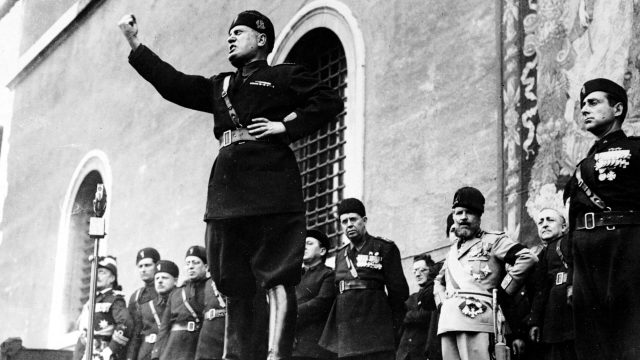By Jacob Hillesheim | Rewire
History’s dictators: They ruled with absolute authority. They seized or maintained control through force and violence, crushing all opposition in their pursuit of absolute power. Civil rights? Civil liberties? Rule of law? Forget about it.

The United States has never been a true dictatorship. But for most of its history, our country’s limited suffrage meant it was not a true democracy, either.
Some presidents, due to their own politicking or confronted by some great crisis, enjoyed more authority than others. Dictatorships carry a serious negative connotation, but how did the United States fare under its most powerful presidents?
The American ‘dictators’
George Washington was beloved enough to win two presidential elections — unanimously. Although the presidency of his time was far weaker than it is today, Washington ably guided the new country through its infancy. Washington could have won elections for the rest of his life. Instead, he stepped down after two terms.
Andrew Jackson was generally loved by “the people,” if only for his cheese. Jackson pursued his agenda vigorously, amassing so much power that critics labeled him “King Andrew the First,” as you probably learned when analyzing this political cartoon in high school.
He shot down, almost literally, South Carolina’s threats of secession during the Nullification Crisis, when the state refused to pay federal tariffs, and it was during his time in office that most religious and property requirements for voting disappeared.
Abraham Lincoln got his power from the greatest domestic crisis in U.S. history, the American Civil War. Lincoln centralized authority, using every scrap of that power to win the Civil War, preserve the Union and destroy chattel slavery in the United States.
Teddy Roosevelt virtually invented the modern presidency. Instead of waiting for the public to support his programs, Roosevelt created support by appealing directly to the masses through the media. As president, Roosevelt delivered a “square deal” to the American people, breaking up monopolies, recognizing the rights of workers and instituting conservation programs.
Franklin Delano Roosevelt also achieved incredible power due to a domestic crisis. Congress, more than willing to punt on the Great Depression, rubber-stamped program after program as part of FDR’s New Deal. Although historians and economists debate the New Deal’s success in tackling the Depression, it relieved a lot of suffering and instituted several critical reforms.
FDR’s authority grew further following America’s entry into World War II, instituting a massive military draft and ordering private businesses to make war supplies. By the end of the war, the United States was a superpower, and the dictatorships of Germany, Italy and Japan had been destroyed.
‘With great power…’
With all those great accomplishments, it might be tempting to love the idea of an all-powerful president. Unfortunately, these presidents failed to use their power only for good.
George Washington was a slave-owner who presided over a “democracy” where well under half its residents could vote. During the Jackson presidency, the voting rights of free black men shrunk, to say nothing of the Indian Removal Act, which forcibly removed tens of thousands of Native Americans from their homes and resulted in thousands of deaths.
Abraham Lincoln jailed dissenters and ignored habeas corpus throughout the Civil War. Teddy Roosevelt refused to take action against the lynching of African Americans, renewed a law limiting Chinese immigration and was responsible for the so-called “Gentlemen’s Agreement,” which placed similar restrictions on people of Japanese descent.
These anti-Asian policies culminated in Franklin Roosevelt’s Executive Order 9066, which forced the relocation of 110,000 Japanese and Japanese-Americans to internment camps.
But who’s responsible?
It’s tempting to look to the other branches of government to keep powerful presidents in check. After all, it worked when the Supreme Court blocked President Harry Truman’s seizure of steel plants during the Korean War and when President Richard Nixon resigned rather than face impeachment by Congress.
Unfortunately, we can’t let ourselves off the hook that easily. These events, now black marks on America’s history, happened because “we the people” made them happen or allowed them to happen. Jackson signed the Indian Removal Act, but it was just the latest in a parade of policies stretching back to the colonial period. The Chinese Exclusion Act was a response to overwhelming pressure from California residents. At the end of the day, the politicians who made these disastrous decisions could trace their power back to the people.
If there’s a historical lesson to be learned here, it’s a version of “eternal vigilance is the price of liberty.” However, as much as we should keep an eye on our government, we must also guard against our own worst impulses. Our system only works when we protect not only our own rights and liberties, but those of the most vulnerable members of society. Anything less, and a generation later our kids are learning about another sad chapter in American history.
That’s one of the bummers of democracy. When a dictator does something awful, shame on them. When a democracy does something awful, shame on all of us.
![]() This article originally appeared on Rewire.
This article originally appeared on Rewire.
© Twin Cities Public Television - 2019. All rights reserved.
Read Next



